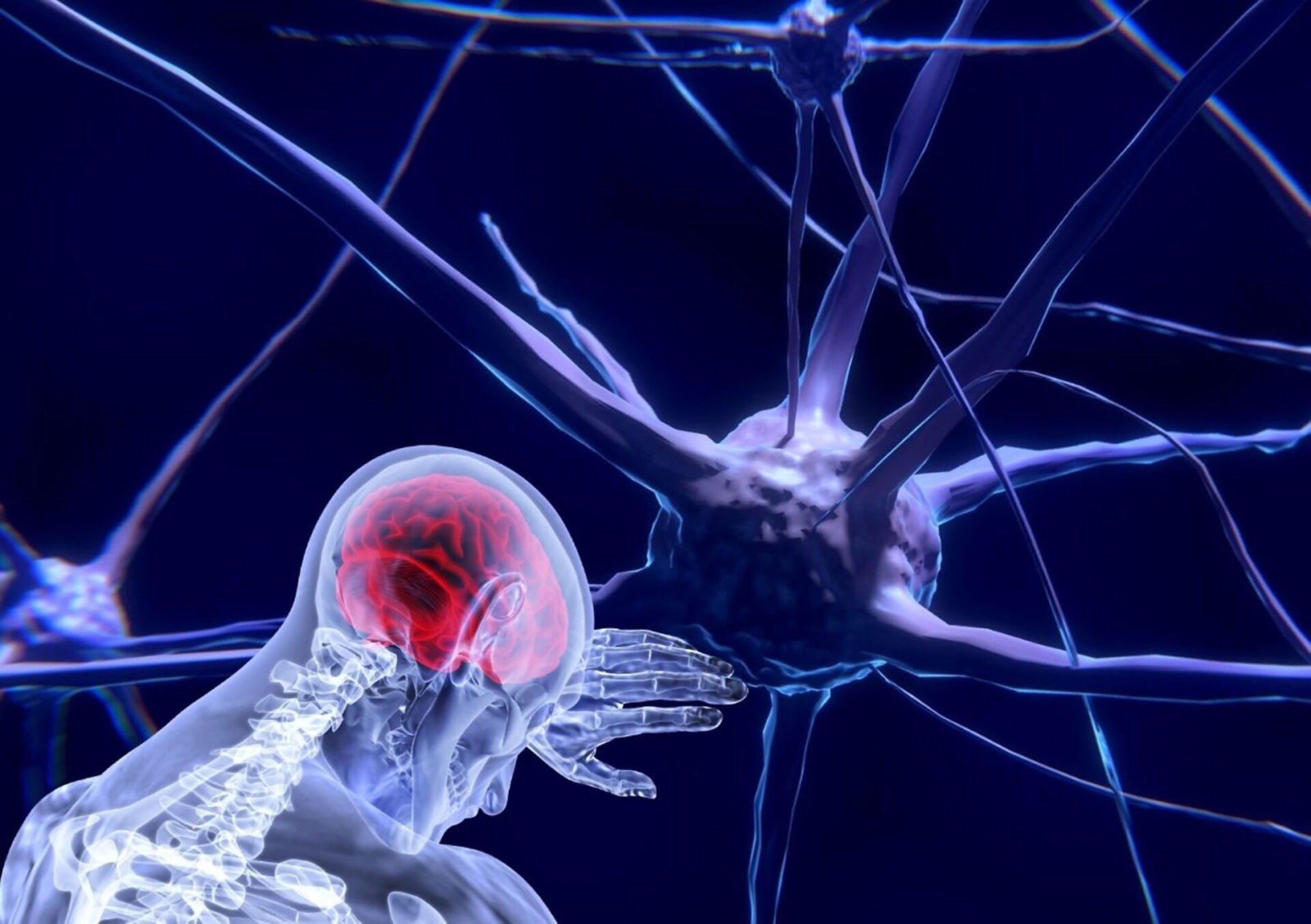A Spotlight on Multiple Sclerosis

Story by Jeanie Edgmon
Our brains are amazing.
Of all the physical components of the human body, the one we most associate with the concept of our “self” and our consciousness is the brain. Yet, ironically, it is the component of which we understand the least.
This amazing, three-pound mass sculpts who we are and how we interact with and influence the world in which we live. It responds to an infinitesimal amount of data, allowing us to calculate, plan, feel, judge, emote, communicate, and move in countless ways. It expands to accommodate a new language or skill that we learn. It constantly runs in the background and tells stories when we’re sleeping. It sends alarm signals, and it spurs the body to run or fight when it senses danger. The brain adapts to environments so we aren’t annoyed by a constant unpleasant smell or annoying noise. Our brains look to the environment to tell us what time it is, or how we are situated in the world. The brain stores memories, both painful and pleasant, and lets go of them. It allows us to understand concepts so that we can understand even more concepts, and to create things that never before existed.

But as essential as the brain is to our existence, and for all of our research, it’s still as mysterious to us as a planet from a far-flung galaxy. It is a wild landscape of millions and millions of electrical wires known as axons, the length of which is equivalent to traveling around the Earth four times. Within these pathways are innumerable complexities and mechanisms that are undiscovered, unimagined even.
Naturally, with all that complexity, there is plenty of room for something to go wrong. Disorders affecting the health of our brains continue to be the leading cause of disability globally. One of those disorders, Multiple Sclerosis (MS), currently affects 2.8 million people of all ages around the world. Every five minutes someone receives this life-changing diagnosis.
Most recently, Actress Christina Applegate, known for her roles in “Bad Moms,” “Married with Children,” and “Dead to Me” announced in a recently published tweet that she had been diagnosed “a few months ago.” Her announcement was preceded by that of several other stars including Selma Blair, Jamie Lynn Sigler, and Jack Osborne who all also have the disease.
In 2018, Blair spoke out about her own diagnosis, describing what it was like to be living with MS.
“I am in an exacerbation,” Blair wrote on Instagram. “I have a job. A wonderful job. I am disabled. I fall sometimes. I drop things. My memory is foggy. And my left side is asking for directions from a broken GPS. But we are doing it. And I laugh and I don’t know exactly what I will do precisely, but I will do my best.”
According to the National Multiple Sclerosis Society, MS is “an unpredictable, often disabling disease of the central nervous system that disrupts the flow of information within the brain, and between the brain and body” and cause issues with vision, balance, muscle control, and other basic body functions. This disease causes the patient’s immune system to attack the myelin sheath or the fatty tissue that surrounds the nerve fibers to protect them. Once this layer is compromised the nerve cells become vulnerable to damage, resulting in scar tissue. This damage prevents the brain from sending signals throughout the body and results in weakness and loss of control and sensation. The organization additionally notes that there are an estimated 1 million people living with MS in the United States right now.

Researchers do not know exactly what causes MS but it is believed to be a combination of environmental and genetic factors. Certain viral infections such as Epstein-Barr virus or the Human Herpesvirus 6 which both have immunosuppressive properties may also trigger the disease or cause a relapse. Scientists are currently studying the link between viruses and Multiple Sclerosis but have yet to publish any conclusive data confirming the link.
Currently, there is no cure for MS, but we are making huge strides in the development of therapies. Until 1946 and the founding of the National Multiple Sclerosis Society, research into the disease was almost non-existent. The disease was difficult to diagnose and there were no therapies proven to slow its course. Since that time, advances in our understanding of the diagnosis, imaging, pathology, and clinical monitoring of MS have significantly increased our ability to treat this complex disorder. Today, magnetic resonance imaging (MRI) is used in the diagnostic process, and treatment involves three parallel pathways including treatment of relapses, symptom management, and long-term prevention of tissue injury.
A focus on the disease since that time has fueled many recent advances. Today there are many therapies specifically approved for treating and managing MS, with many more in testing and development. In 2017, the FDA approved Ocrevus (ocrelizumab) as the first disease-modifying therapy for primary progressive MS, and also as a therapy for relapsing MS. More recently, the FDA approved Mavenclad (cladribine) for adults with relapsing forms of MS, Mayzent (siponimod) for adults with the clinically isolated syndrome, and Vumerity (diroximel fumarate, Biogen and Alkermes plc) also for relapsing MS, among several others.
Stem cell transplantation also is being evaluated as a treatment for MS. Researchers are exploring whether destroying the immune system and then replacing it with transplanted stem cells can “reset” the immune system in people with MS. Early research shows that mesenchymal stem cells (MSCs) can combat inflammation within the body. Once administered stem cells will work to help regulate the immune system and prevent further myelin degradation. This makes mesenchymal stem cells (MSCs) an attractive therapy for MS and other conditions characterized by inflammation and/or tissue injury.
Beyond the results of any single study, today we can be encouraged by the vast and incredible breadth of research in MS currently being conducted worldwide. Such research promises substantial progress in understanding, the development of new and more effective therapies, and hopefully one day a cure.
For more information regarding MS, please visit: nationalmssociety.org






